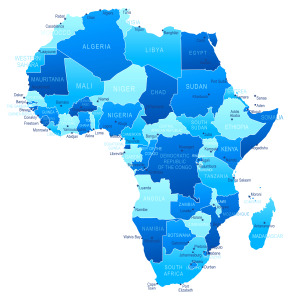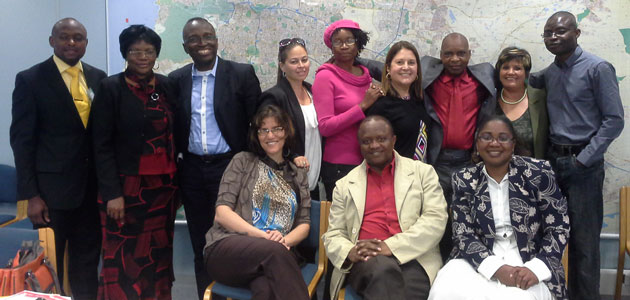 The case for regional integration in Africa has been made, by Donald Kaberuka, President of the African Development Bank, as well as by other well-known African authorities. So the question that now arises is how can regional integration be accomplished? Large amounts of money – both public and private – are being expended for transportation infrastructure. Yet, there is an institutional deficiency that substantially impedes regional integration. It is the customs red tape and paper work at the border. These non-tariff barriers that cause customs delays and uncertainty obstruct regional integration just as much as inadequate infrastructure, thereby preventing Africa from finding its place in the 21st Century global value chain.
The case for regional integration in Africa has been made, by Donald Kaberuka, President of the African Development Bank, as well as by other well-known African authorities. So the question that now arises is how can regional integration be accomplished? Large amounts of money – both public and private – are being expended for transportation infrastructure. Yet, there is an institutional deficiency that substantially impedes regional integration. It is the customs red tape and paper work at the border. These non-tariff barriers that cause customs delays and uncertainty obstruct regional integration just as much as inadequate infrastructure, thereby preventing Africa from finding its place in the 21st Century global value chain.
Practice Areas
Debate Concerning Renewal of African Growth and Opportunity Act Has Begun
BY: EVELYN M. SUAREZ AND SINGLETON B. MCALLISTER
 Signed into law by President Clinton on May 18, 2000 and subsequently expanded, the African Growth and Opportunity Act (AGOA) is a unilateral system of trade preferences that allows thousands of types of goods produced in Sub-Saharan Africa to be imported duty-free to the United States.
Signed into law by President Clinton on May 18, 2000 and subsequently expanded, the African Growth and Opportunity Act (AGOA) is a unilateral system of trade preferences that allows thousands of types of goods produced in Sub-Saharan Africa to be imported duty-free to the United States.
AGOA is widely perceived to be a success, albeit a limited one. From 2001 to 2011, the aggregate amount of exports from Africa to the United States under AGOA increased from $8 billion to $54 billion; the number of countries participating grew from 34 to 40; and the number of countries exporting nonenergy products increased from 13 to 22. American officials describe AGOA as the “cornerstone” of U.S. trade policy with Africa.
Influential Leadership for Public and Corporate Leaders Programme

Evelyn Suarez was invited to speak at the Influential Leadership for Public and Corporate Leaders Programme that took place December 2-6, 2013 in Cape Town, South Africa. The program aims to equip a select number of students with the practical tools to realize their full leadership potential. Click here for the full program report.
Global Trade Update: What’s in Store for African Economies
Evelyn Suarez will be speaking on the Global Trade Update panel as part of the South Africa
Investment Forum, taking place in Capetown, South Africa, from December 3rd through the 4th.
A number of significant developments are currently underway which are likely to shape the rules for
global trade in the 21st century:
The U.S. and European Union, which together represent close to half of global GDP, have
launched negotiations on a “Transatlantic Trade & Investment Partnership” or T-TIP, which is
expected to set standards in such areas as:
After the Broken Broker: Protecting the Honest Broker Presented by the Customs Brokers & International Freight Forwarders Association of Virginia, Inc.
The Customs Brokers & International Freight Forwarders Association of Virginia, Inc. invites you to attend its monthly meeting and luncheon.
Evelyn Suarez will give a presentation entitled, “After the Broken Broker: Protecting the Honest Broker Presented by the Customs Brokers & International Freight Forwarders Association of Virginia, Inc.”
